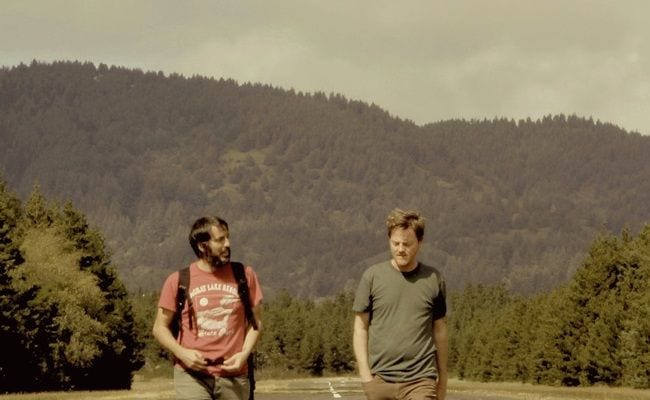
Matthew Cooper’s Eluvium project has been putting out albums for well over a decade at this point, but in 2010, he had a genuine, almost-mainstream moment. With the excellent Similes he took his never-ending waves of indie-ambient bliss and wrapped them up into structures, some songs even featuring vocals, and, against all odds, he moved towards the “ambient-pop” spectrum of things.
Not that Cooper would ever sell out, mind you, but the ear-meltingly beautiful “The Motion Makes Me Last”, while simple in structure, became an immediate high-point in Eluvium’s career, soon getting remixes from the like of the Books’ Nick Zammuto and moving him ever closer to the forefront of indie media. Three years later, Eluvium released the anticipated double-disc effort Nightmare Ending, and despite the critical breakthrough he achieved with Simile, Nightmare‘s constant trips through Eluvium’s own aural flip-book of achievements we’ve already heard before proved so nostalgic for his own sounds of yore that we forgot what made his current releases so damn special. Some critics fawned over it, but fans, by and large, felt let down by two whole discs worth of atmospheric navel-gazing.
Not to worry though, as back in 2013, Cooper teamed up with his friend Mark T. Smith, who happens to be one of the guitarists for Explosions in the Sky. The group put out their self-titled debut in 2014 to modest success, which PopMatters’ own Benjamin Hedge Olson referred to as an album that “ends up sounding like exactly what it is: Eluvium collaborating with Explosions in the Sky. This works pretty well for me and they mostly avoid the overly-dramatic, sentimental quality that sometimes causes me to roll my eyes at Explosions in the Sky.” Although the duo has been intermittently active since inception, Blanket Waves, a new two-song EP from the guys that just so happens to run over 26 minutes, marks their first major release in some time.
There are only two songs here on Blanket Waves, and they both go well past 10 minutes, and are certainly pleasing if not extraordinary. Of the two, the a-side title track is the clear winner, it’s first nine minutes building up from a simple synth pattern that recalls acts like F/C Kahuna at their most mellow, as the melody is clear even if the instrumentation is sparse. There is no divine crescent that is reached, but as is often the case with Eluvium’s music especially, there doesn’t need to be. After the nine-minute mark, the song dissipates into cacophonous piano chords that get swept away in a pixelated sandstorm, but feels largely unconnected from the song’s first two thirds.
On the opposing end, there’s “Hearing Loss”, which consists of a lot of fascinating elements, ranging from sampled vocal responses to stuttering synth lines to distant-sounding choirs to a rather moody piano coda near the end. All of these moments are great by themselves (although the reverse-flipped piano after the eight-minute mark threatens to turn into the score for the U.K. sci-fi series Torchwood at any minute) but they don’t have much to do with each other, making for a sonic document that is much better appreciated than it is experienced.
That can very much be said for some of Cooper’s more recent output, which isn’t necessarily a dig so much as it is just an acknowledgment that while his material used to have a real cathartic bent to it, he has been increasingly pushing his sound into intellectual territory, connecting with the head but less and less so with the heart.

